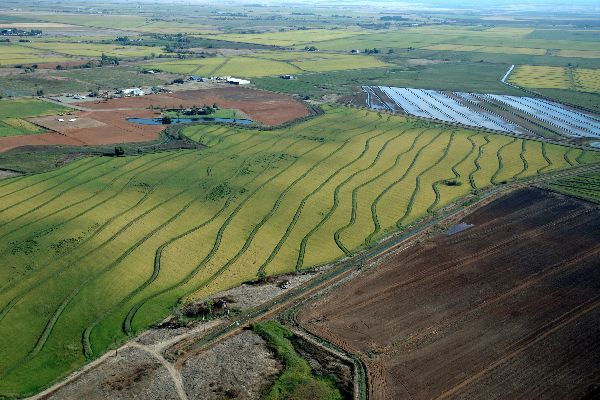New PPIC Report Addresses California's Water Market

The Public Policy Institute of California (PPIC) recently released a report, "Managing California's Water: From Crisis to Conflict." The report overviews the major issues facing California water supply, safety, environmental impacts, as well as regulatory and management issues.
With continued water demands from residents and business interests, water in California continues to be an issue. In fact, the PPIC report labels the last 40 years of water management in the state as the "era of conflict."
The debate around water has intensified over the last several years with the growing ecological impact on California native fish and the national debate over water contamination, including the expanding practice of fracking -- the use of chemicals under high pressure to free oil and gas from rock formations.
A stunning 83 percent of California native fish are either extinct, listed by federal and state authorities as "endangered," or in decline.
Meanwhile, fracking threatens to limit the supply of clean water. A deteriorating and inadequate water management system also puts the state at risk of massive and costly flooding.
In a state of 38 million people, and the 9th largest economy in the world, water politics in California remains one of the most contentious issues, and perhaps the issue most Californians know little to nothing about.
The PPIC's 484 page report meticulously details the major issues, including background and conflicting interests as a prelude to proposing an "era of reconciliation."
The backdrop to the report is California's soon to be reduced "water rights" to the Colorado River. California, along with the other "Lower Division" states -- Arizona and Nevada -- rely on water from "Upper Division" states such as Colorado, New Mexico, Wyoming, and Utah.
In 1922, the Colorado River Compact set rules for how much the "Lower Division" states can rely on the once bountiful Colorado River. However, a 2001 agreement to address the decreasing supply of water gave California only 15 more years of current level water rights.
Conservation of water has advanced greatly, but the PPIC report raises issues above and beyond access to water.
The report details increased risks of water contamination, ecological impacts of water policy, and the changing needs of business. Acknowledging "entrenched" political division in the State, the PPIC report offers a wide variety of solutions from ecological mitigation, water access, and policy and management.
The report urges a consolidation and reorganization of water regulation to better address the varied interests and projects across the state.
PPIC also urges macro approaches to dealing with environmental issues as well as immediately addressing flood prevention in the Sacramento - San Joaquin Delta.
The organization proposes new approaches to limiting water contamination, improving water storage, and exchanges between water districts and consumers similar to the national "cap and trade" air pollution strategy.
With so much covered in the report, PPIC is sure to draw applause and gasps from all corners of the state. Yet, it raises an important point about water consumption in the state.
If California continues to consume high levels of water, as its supply drops, the state must immediately address: water contamination, deteriorating floods and levies, water regulations, the ecological impacts of water policy, and the ever present conflicts between agribusiness, business, and residential needs.




